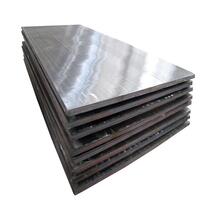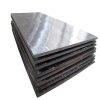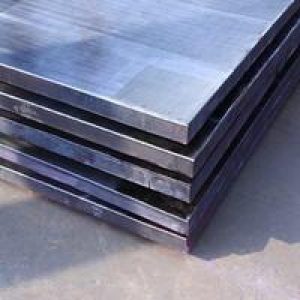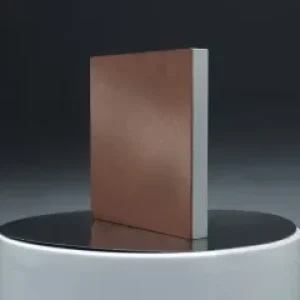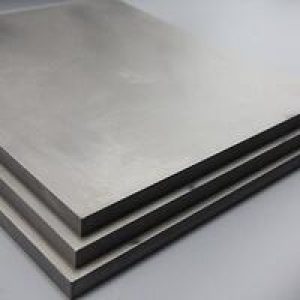Overview of Lab Open Cell Porous Nickel Metal Foam Roll Sheet Composite Metal Ni Foam Plate for Lithium Battery Electrode
Composition: Nickel alloy composite plates typically involve a layer or layers of nickel alloy bonded with other materials like ceramics, superalloys, or polymer composites. The combination aims to leverage the strengths of each component, resulting in a plate with superior properties compared to its individual parts.
Manufacturing Process: Fabrication methods for these plates may include hot pressing, explosive bonding, or advanced welding techniques to ensure a strong bond between the different materials while preserving their respective properties.
Features of Lab Open Cell Porous Nickel Metal Foam Roll Sheet Composite Metal Ni Foam Plate for Lithium Battery Electrode
-
High-Temperature Resistance: Nickel alloys inherently possess excellent heat resistance, and when combined with appropriate composite materials, these plates can withstand extreme temperatures without losing their structural integrity.
-
Superior Corrosion Resistance: Nickel alloys are well-known for their corrosion-resistant properties, which are further enhanced when combined with corrosion-resistant composites, making these plates ideal for use in corrosive environments.
-
Enhanced Mechanical Properties: The composite structure can result in improved strength, stiffness, and toughness compared to conventional nickel alloys, allowing for thinner sections without compromising performance.
-
Thermal Stability: Nickel alloy composite plates exhibit excellent thermal stability, maintaining their dimensions and properties across a wide temperature range.
-
Customizable Properties: By altering the composition and layering of materials, manufacturers can tailor the properties of the composite to meet specific application needs, such as wear resistance or electrical conductivity.
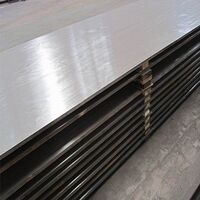
(Lab Open Cell Porous Nickel Metal Foam Roll Sheet Composite Metal Ni Foam Plate for Lithium Battery Electrode)
Parameters of Lab Open Cell Porous Nickel Metal Foam Roll Sheet Composite Metal Ni Foam Plate for Lithium Battery Electrode
When referring to a lab-grade open cell porous nickel metal foam (Ni foam) used as an electrode material in lithium-ion batteries, several key parameters are crucial for understanding its performance and characteristics. Here’s a list of important parameters:
1. **Porous Structure:**
– Porosity: The percentage of void space within the foam, typically expressed as a volume fraction (e.g., 90% porosity means 90% of the total volume is empty space).
– Pore Size Distribution: The range and distribution of pore sizes, which affects ion diffusion rates.
– Pore Density: The number of pores per unit area.
2. **Electrode Thickness:**
– Nominal or actual thickness of the Ni foam sheet.
3. **Metal Loading:**
– Nickel content: The mass fraction of nickel in the foam, often expressed as weight percent (wt. %) or volume percent (vol. %).
– Active Material Loading: The mass fraction of lithium-ion active material (e.g., lithium nickel oxide) on the Ni foam.
4. **Electrical Conductivity:**
– Resistivity: The measure of electrical resistance, which impacts battery performance and efficiency.
– Specific Conductivity: Conductivity per unit volume, critical for fast charge transfer.
5. **Mechanical Properties:**
– Tensile Strength: Ability to withstand applied stress before breaking.
– Elastic Modulus: Stiffness of the foam under deformation.
– Flexibility: The ability to bend without significant damage.
6. **Cellularity:**
– Number of interconnected channels or cells in the foam, which affects ion transport paths.
7. **Surface Area:**
– Brunauer-Emmett-Teller (BET) surface area: A measure of the total accessible surface area for lithium-ion adsorption.
8. **Thermal Properties:**
– Thermal Conductivity: Heat transfer rate through the material.
– Thermal Stability: Resistance to degradation at elevated temperatures.
9. **Compatibility:**
– Compatibility with electrolyte: Ensures good wettability and prevents corrosion.
10. **Manufacturing Process:**
– Production method (e.g., electrochemical deposition, sintering, foaming process) can affect properties like porosity and uniformity.
These parameters are typically reported in scientific publications or provided by the supplier and are essential for optimizing the Ni foam electrode for specific battery applications. To obtain accurate values, you would need to consult the product specifications or perform your own characterization tests.
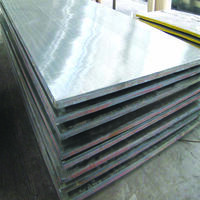
(Lab Open Cell Porous Nickel Metal Foam Roll Sheet Composite Metal Ni Foam Plate for Lithium Battery Electrode)
Company Profile
Metal Plates 4u is a trusted global metal material supplier & manufacturer with over 12-year-experience in providing super high-quality metal clad and relatives products.
The company has a professional technical department and Quality Supervision Department, a well-equipped laboratory, and equipped with advanced testing equipment and after-sales customer service center.
If you are looking for high-quality metal alloy clad and relative products, please feel free to contact us or click on the needed products to send an inquiry.
Payment Methods
L/C, T/T, Western Union, Paypal, Credit Card etc.
Shipment
It could be shipped by sea, by air, or by reveal ASAP as soon as repayment receipt.
FAQs of Lab Open Cell Porous Nickel Metal Foam Roll Sheet Composite Metal Ni Foam Plate for Lithium Battery Electrode
Q: What are the common applications of nickel alloy composite plates?
A: These plates find extensive use in industries like aerospace, power generation, petrochemical, and chemical processing due to their ability to withstand high temperatures, corrosion, and stress. Applications include turbine components, heat exchangers, chemical processing equipment, and high-temperature fuel cell components.
Q: Is Lab Open Cell Porous Nickel Metal Foam Roll Sheet Composite Metal Ni Foam Plate for Lithium Battery Electrode cost-effective?
A: While initial costs may be higher than some conventional materials due to the complexity of manufacturing and the use of premium materials, their longevity, reduced maintenance requirements, and improved performance in harsh conditions often justify the investment over their service life.
Q: How is Lab Open Cell Porous Nickel Metal Foam Roll Sheet Composite Metal Ni Foam Plate for Lithium Battery Electrode fabricated to ensure quality?
A: Quality control during fabrication is crucial. Techniques like non-destructive testing (NDT) like ultrasonic inspection, X-ray, or magnetic particle testing are employed to ensure bond integrity and absence of defects. Material certification and traceability are also maintained.
Q: Is Lab Open Cell Porous Nickel Metal Foam Roll Sheet Composite Metal Ni Foam Plate for Lithium Battery Electrode difficult to machine or work with?
A: Due to the hardness and toughness of nickel alloys and the composite structure, machining and fabrication may require specialized tools and techniques. It’s important to work with experienced fabricators familiar with these materials.
Q: Can Lab Open Cell Porous Nickel Metal Foam Roll Sheet Composite Metal Ni Foam Plate for Lithium Battery ElectrodeX be repaired or refurbished?
A: Yes, depending on the extent of damage and the composite structure, repair or refurbishment may be possible. However, it’s essential to consult with experts to determine the most appropriate repair method to maintain the integrity of the composite.
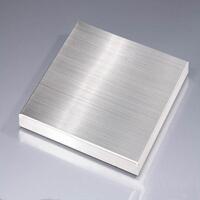
(Lab Open Cell Porous Nickel Metal Foam Roll Sheet Composite Metal Ni Foam Plate for Lithium Battery Electrode)

